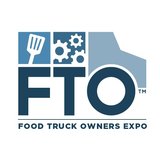Fast Casual Executive Summit
How women leaders can make a difference in foodservice
Four women, who were invited to share experiences as female executives during the Fast Casual Executive Summit in Austin, said women in leadership positions need to encourage other women to take on leadership positions.

November 9, 2019 by Elliot Maras — Editor, Kiosk Marketplace & Vending Times
In recent years, workforce diversity has emerged as an important issue for businesses. While many companies become aware of the need to have a diverse workplace as a fairness issue, executives in the trenches also recognize it as a way to improve the business since diverse viewpoints can create a more successful organization.
Four women, who were invited to share experiences as female executives during the Fast Casual Executive Summit in Austin, said women in leadership positions need to encourage other women to take on leadership positions.
 |
| Robin Robison, Kathleen Wood, Michelle Harden, Sue Petersen and Janene Holig discuss the importance of women in leadership. |
The National Restaurant Association reports 60% of all women work in the restaurant industry at some point in their lives, session moderator Michelle Harden, an attorney at Messner Reeves, stated at the outset. In addition, Forbes reported 71% of restaurant servers are female and about 52% of restaurant employees are female, but only 21% of people in restaurant c-suites are female.
As bad as these numbers are, "We're making progress and that's exciting," Harden said.
All four of the foodservice industry executives on the panel said they overcame inhibitions early in their careers in order to advance in their organizations. They also found that having mentors within their organizations was key to success.
What women bring to leadership
"As a woman, we have different powers with the people we work with," said panelist Janene Holig, executive chef and vice president of food operations at Hot Indian Foods, a Minneapolis restaurant chain that began as a food truck. "We see things differently and we listen to things differently."
After getting a degree in culinary management, Holig wanted to start her own business and eventually met her business partner, an Indian man with a lot of corporate experience, who wanted to start a food truck. Hence, Hot Indian Foods began under leaders who differed by gender, culture and career background.
"We also have cultural things that people bring to the table for us," Holig said, citing her company's ethnic diversity. "That has been eye opening for me. I am the whitest person at my company." She learned to listen to and communicate with people who were different from her.
Holig said she also surrounded herself with people who gave her honest feedback.
Mentors matter
Panelist Robin Robison, CFO, Modern Market Eatery, said she found it critical to surround herself with great mentors, whom she called her "dream team" while working for different foodservice chains, people who gave her honest feedback and encouraged her.
Robison also noted the importance of taking risks. She was doing HR for a chain and didn't think she had the background to be a multi-unit manager when she was offered the position. Her dream team encouraged her, and she took it.
"It was probably the biggest growth vehicle in my career," she said. "I'm so grateful that I had the courage to do something different." She gained new disciplines and made new contacts.
Robison said women need courage to step out and take on challenges. "It allows people to see you differently," she said.
Panelist Sue Petersen, vice president of human resources at Noodles & Company, also sought mentors in the organizations she worked at after getting a degree in HR. While a lot of people talk about the need to network, Petersen pointed out that developing personal relationships is more critical than networking.
She was working in HR at Chipotle but wanted to move into operations. So she arranged to meet with a c-suite executive to help her move into operations.
"He challenged me and asked me a few questions, but then said, 'Absolutely Sue, this is what you want to do, this is what you will do.' He opened that door for me and shepherded me through that entire process."
Her relationship with this individual eventually got her to Noodles. "He will always be in my corner," she said.
Petersen also recognized the need for women to overcome their reluctance to be assertive. She herself had an advantage in this area since both her mother and grandmother were business owners who believed anything is possible.
Finding your voice
"Women have a tendency to sit back and go, 'Oh, they must not want me,'" Petersen said. "Just insert yourself."
Secondly, she said, "Always take the offer."
At one point in her career, she was in Walgreen's HR organization and was one of seven people selected out of a thousand to organize a work stream to build a call center, despite having no real estate background. It was one of her best experiences, as it allowed her to broaden her skills and her understanding of the business world.
Panelist Kathleen Wood, co-founder of Suzy's Swirl in Lake Bluff, Illinois and a Chicago based consultant, also cited the importance of having mentors.
She said she works from the "GPS model," which has 24 satellites for different functions. She groups people around her who help her in different ways. She periodically reviews whether she has the right contacts to help her do what she needs to do. "It takes a village to do what you want to do," she said.
Like the other panelists, Wood said she believes female executives should encourage other women to be assertive. One rule at Suzy's Swirl, which mainly consists of female employees, is everyone must negotiate their pay.
"They have to give the business case and they have to explain why they want more money," she said.
Take risks, and be willing to fail
Employees are also advised to take risks. "We believe in the concept of fail forward magnificently," Wood said. If young women were taught to do this earlier in life, she said, the statistics on women's work roles would be different.
"If your hand gets knocked down, put it up again," Wood said, encouraging women to pursue their goals. "I'm going to be called successful at the end of the day."
Being assertive does not mean you don't listen to others, however.
"Sometimes you need to take a back seat and you need to listen," Holig said when asked for advice for young people. "The younger person in me was so ready to respond and so ready to pounce on things I was listening to versus hearing the whole thing and developing something to say and being supported by actual things I had done in life."
Asked how to make the industry more welcoming to women, Holig said summits like FCES are a good forum. On a personal level, she said her biggest goal is to represent what a woman can do in the industry and she tries to be a role model for young females.
"There's plenty of room for everybody at the top, so let's have those conversations and break those ceilings," she said.
Petersen said it's important to change the "either or" choice between family and career. "It's not an either/or, it is an 'and,' whether you're male or female," she said. This is accomplished by being flexible to achieve work/life balance.
DID YOU KNOW? FastCasual has started a Facebook Group for women in the industry. Click here to join.
About Elliot Maras
Elliot Maras is the editor of Kiosk Marketplace and Vending Times. He brings three decades covering unattended retail and commercial foodservice.







